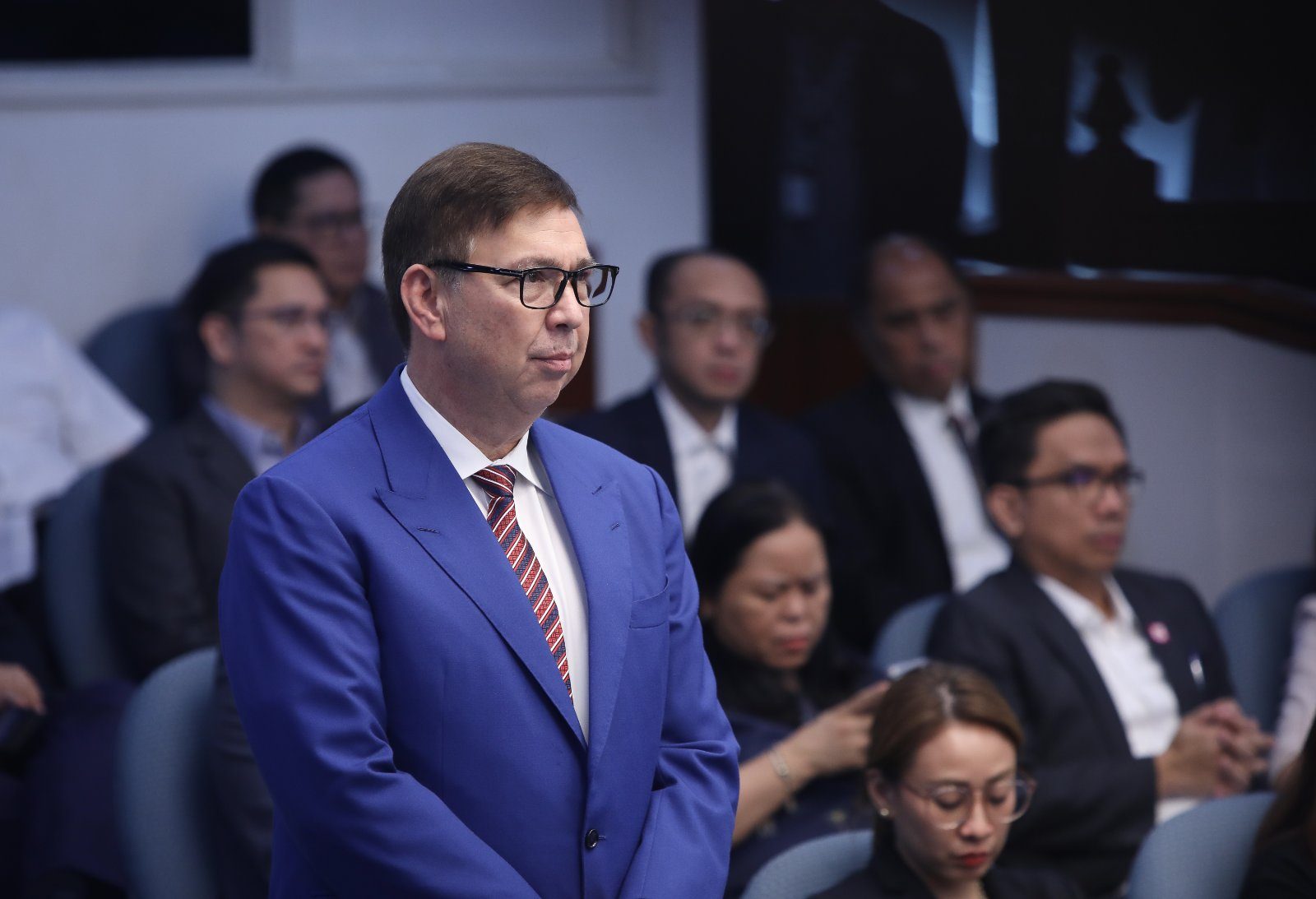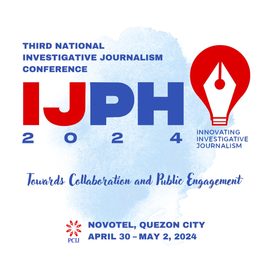SUMMARY
This is AI generated summarization, which may have errors. For context, always refer to the full article.

In the olden days when the Philippines was less democratic than it is today, the formula to winning elections was the 3Gs: guns, goons, and gold.
Those who were supported by warlords, especially outside the capital, and backed by either the Nacionalista Party (NP) or the Liberal Party (LP), had the best chances of winning in national elections.

Finance Secretary Ralph Gonzalez Recto’s grandfather, the nationalist lawyer Claro M. Recto, must have learned this painful lesson when he lost badly in the 1957 presidential elections.
Recto, running under the Nationalist Citizens’ Party wth Lorenzo Tañada as running mate, garnered only 8.5% of the votes, placing a poor fourth behind the NP’s Carlos Garcia, the LP’s Jose Yulo, and the Progressive Party of the Philippines’ Manuel Manahan.
The old man Recto, an Ateneo Blue Eagle who graduated law from the University of Sto. Tomas, won in his home provinces of Quezon and Batangas only.
When the multi-party system took effect post-1986 and mass media became more influential, the formula for winning in the polls was the 3Ms: money, media, and the masa (masses) – a lot of moolah, popularity gained through television and radio (and now social media), and support from the masses who make up around 90% of voters.
With the political party system weakened, the field became more open to non-politicians, especially well-known celebrities, more so if the celebrity had a political background. Joseph Estrada would go on to win the 1998 presidential elections, and celebrities such as Vicente “Tito” Sotto III, Ramon Revilla Sr. and also Jr., Noli de Castro, Robert “Bobby” Jaworski, Robinhood Padilla became senators.
The current finance chief surely knows the key role of the mass media. With “Star for All Seasons” actress Vilma Santos as wife, Ralph Recto has won all the elections he has joined, save for one.
Different constituencies
But winning an election is certainly not the same as serving in the executive branch. Being a Cabinet member and surviving the whole term of an incumbent president requires a different set of skills, knowledge, and relationships.
Sharing wise pieces of advice he got before taking on the finance portfolio in January this year, Recto told members of the Economic Journalists Association of the Philippines (EJAP) the four Ms on how to survive being a member of the President’s Cabinet.
“I was told that as SOF [Secretary of Finance], I have three constituencies to serve. Malacañang, a constituency of one. The market, which I should not rattle. The masses, which should never be incited to anger,” Recto said on March 21, Thursday.
The first 3Ms: Malacañang, market, masses.
The first is probably the hardest for a Cabinet official because it relies on having good personal relations with the chief executive, and making sure not to be the one responsible for his or her decline in public satisfaction ratings. Committing big mistakes has led to many officials getting axed.
The second is easier to do since Recto just has to stick to being a technocrat.
The third should be close to Recto’s heart. He lost in his reelection bid in 2007 when voters rejected him as senator after he led the push for the Expanded-Value Added (E-VAT) Tax bill that was signed into law by then-president Gloria Macapagal-Arroyo in May 2005.

It’s no surprise that Recto has not spoken about imposing new taxes after accepting the finance portfolio. As he said back in January: “I think the best way to raise revenues is to grow the economy and to expand the tax base.”
What then is the fourth M? Let’s hear it from the Senate’s former “numbers cruncher”:
“Pagkatapos ng isang buwan, napansin ko may kulang, may pang-apat na M pala – media. (After a month [in office], I noticed there was something lacking, that there was a fourth M – media.)
“As I preach the gospel of a brighter Philippine economy and how we intend to turn this optimism into a daily reality for every Filipino, I realized that I cannot do it without you [economic journalists].
“Fact is, the SOF [Secretary of Finance], the highest-paid casual in the DOF, relies on the DOF [Department of Finance] press corps, private individuals, in conveying messages to the people.
“You are the guardians of context and perspective. You shape how our people understand the world around them.
“And if in the process, you will write something that does not fit into our message, then you will hear no qualms from me because ‘a public official who complains about the press is like a ship captain who complains about the sea’.”
Call us out if we are wrong, and on times we have done something good, write about our wins – just the facts, no add-on praises needed. Because if you do your work, you help us with ours, as the feedback your reports trigger is crucial in improving policy.”
– Ralph recto
Recto expounded on this in the first part of his speech:
“…ask any politician what his ideal press coverage is, and he will answer that it is the kind that sings nothing but hosannas to him. In short, a hallelujah squad.
“But I am a Recto, and from my grandfather to my father, we believe that public interest is better served by a press that is fair and free and fights, than one that fawns upon and flatters.
“However, please do not take it as a signal for you to grab your pitchforks and start skewering me.
“Fairness is all I ask, nothing more, nothing less.
“Call us out if we are wrong, and on times we have done something good, write about our wins – just the facts, no add-on praises needed.
“Because if you do your work, you help us with ours, as the feedback your reports trigger is crucial in improving policy.
“I am a believer in the power and utility of critiques – the ones based on facts and not on fiction – because they can polish the rough edges that may hurt the many stakeholders who are impacted by what we do…. in a nation that must be constantly assured of its economic health, in a world that continuously monitors it, I know that I cannot be a hermit SOF.
“So guys, girls, like it or not, you have to bear with my presence. We’re all in this together.
“While an SOF is a dealer of hope, he must be a teller of truth. He owes the country not only his hard work, but more importantly, his honesty.
“Besides, there is no wiggle room here for spin, as numbers do not lie, and if they’re bad, you cannot browbeat it so it can take another shape. You can only promise to do better.
“So one of these days, when you report that a glass is two-thirds empty, I will vigorously, factually insist that it is one-third full.”
Wise words from a 60-year-old senior politician who is now on his second round in the executive branch after serving as National Economic and Development Authority (NEDA) director-general or economic planning secretary in 2008 under the Arroyo administration.
Indeed, these are sound pieces of advice that public officials, not just in the executive branch, should heed. – Rappler.com
Add a comment
How does this make you feel?








![[Just Saying] SONA 2024: Some disturbing points](https://www.rappler.com/tachyon/2024/07/TL-marcos-sona-points-july-23-2024.jpg?resize=257%2C257&crop=335px%2C0px%2C720px%2C720px)





![[OPINION] You don’t always need a journalism degree to be a journalist](https://www.rappler.com/tachyon/2024/06/jed-harme-fellowship-essay-june-19-2024.jpg?resize=257%2C257&crop=287px%2C0px%2C720px%2C720px)

![[Just Saying] Ted Failon, press freedom, and the Supreme Court](https://www.rappler.com/tachyon/2024/07/20240709-ted-failon-press-freedom-supreme-court.jpg?resize=257%2C257&crop=296px%2C0px%2C720px%2C720px)

There are no comments yet. Add your comment to start the conversation.